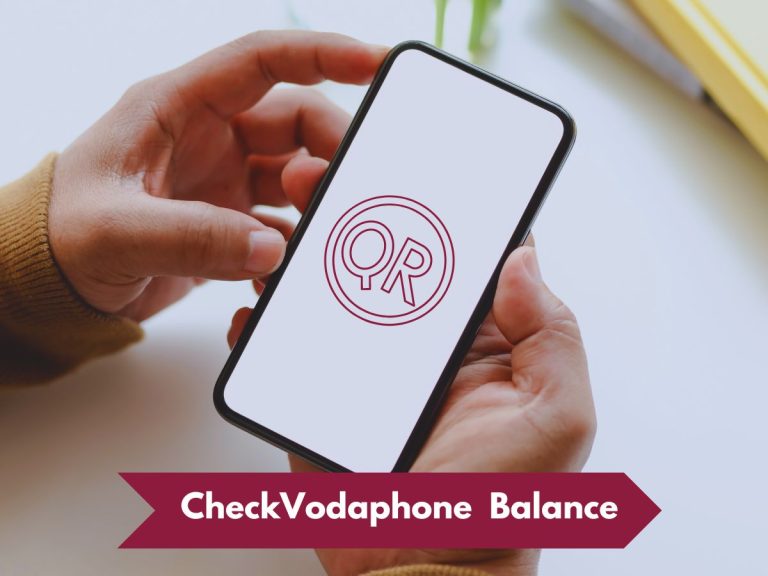Is It Illegal to Use VPN in Qatar?
Using a VPN in Qatar is not illegal, but it’s subject to strict regulations. While personal VPN use is generally allowed, accessing restricted content or engaging in illegal activities through a VPN is prohibited and can result in severe penalties.
Understanding VPN Usage in Qatar
Virtual Private Networks (VPNs) have become increasingly popular worldwide, including in Qatar. These tools offer users enhanced privacy, security, and the ability to access geo-restricted content. However, the legality and regulations surrounding VPN use in Qatar are complex and require careful consideration.
What is a VPN?
A VPN, or Virtual Private Network, is a service that creates a secure, encrypted connection between your device and the internet. It masks your IP address and routes your internet traffic through servers in different locations, providing anonymity and allowing you to bypass geographical restrictions.
Your own experiences with angel number 111 can be powerful. I remember once feeling stuck in a job. Every time I looked at the clock, it seemed to be 1:11. This made me rethink my career path, and I eventually made a change.
How about you? Have you noticed the number 111 at critical points in your life? Reflecting on these moments can give you clues about what your angels are trying to tell you.
The Legal Landscape of VPNs in Qatar
Qatar’s stance on VPN usage is nuanced. While the use of VPNs itself is not explicitly illegal, the government has implemented strict regulations and monitoring of internet activities. The primary concerns revolve around the potential misuse of VPNs for accessing banned content or engaging in illegal activities.
The Qatari government has put in place several measures to control and monitor internet usage, including VPN services.
Telecommunications Law
Qatar’s Telecommunications Law, enacted in 2006, governs internet usage and related technologies. While it doesn’t specifically mention VPNs, it provides a framework for regulating online activities and services.
Content Filtering
The government actively filters and blocks content deemed inappropriate or against national values. This includes pornographic websites, politically sensitive content, and certain VoIP services.
VoIP Services
Many Voice over Internet Protocol (VoIP) services, such as Skype and FaceTime, are blocked in Qatar. Using a VPN to access these services may be considered a violation of telecommunications regulations.
Permitted Uses of VPNs in Qatar
Despite the restrictions, there are legitimate reasons for using VPNs in Qatar that are generally accepted by authorities.
Business and Corporate Use
Many companies in Qatar use VPNs for secure remote access to their networks and to protect sensitive data. This use is widely recognized as legitimate and necessary for business operations.
Personal Privacy and Security
Individuals may use VPNs to enhance their online privacy and protect their personal information from cyber threats. As long as this use doesn’t involve accessing banned content, it’s typically tolerated.
Accessing Non-Restricted Content
Using a VPN to access content that isn’t explicitly banned in Qatar is generally not considered illegal. However, users should exercise caution and be aware of local laws and regulations.
Risks and Consequences of Illegal VPN Use

While personal VPN use is not outright banned, using VPNs for illegal activities or accessing restricted content can lead to severe consequences.
Legal Penalties
Violating Qatar’s internet laws, including the misuse of VPNs, can result in hefty fines and even imprisonment. The severity of the punishment often depends on the nature of the offense.
Blocking and Surveillance
The government has the capability to detect and block VPN traffic. Users attempting to access restricted content may find their VPN connections unstable or completely blocked.
Reputational Risks
For businesses and individuals, being caught using VPNs for illegal purposes can lead to significant reputational damage, potentially affecting employment and social standing.
Choosing a VPN in Qatar
If you decide to use a VPN in Qatar, it’s crucial to select a service that balances functionality with compliance to local laws.
Features to Look For
- Strong encryption protocols
- No-logs policy
- Servers in nearby countries for better performance
- Ability to bypass VPN blocks
Alternatives to VPNs in Qatar
For those concerned about the legal implications of VPN use, there are alternative methods to enhance online privacy and security.
Tor Browser
The Tor network offers anonymity by routing your traffic through multiple servers. However, it can be slow and may raise suspicions.
Proxy Servers
Proxy servers can help bypass some restrictions but offer less security compared to VPNs. They’re generally less likely to be blocked but also provide fewer features.
Smart DNS Services
These services can help access geo-restricted content without encrypting your entire internet connection. They’re less comprehensive than VPNs but may be less likely to be detected.
VPN Use for Expats and Tourists in Qatar
Expatriates and tourists in Qatar often have different needs and concerns regarding internet access and privacy.
Understanding Local Laws
Visitors should familiarize themselves with Qatar’s internet laws and regulations to avoid unintentional violations.
Accessing Home Country Services
Many expats use VPNs to access services and content from their home countries. While this is generally tolerated, users should be cautious about accessing content that’s explicitly banned in Qatar.
Temporary VPN Solutions
Short-term visitors might consider temporary VPN subscriptions or free services, keeping in mind the potential limitations and risks associated with free VPNs.
Best Practices for VPN Use in Qatar
To use VPNs safely and legally in Qatar, consider the following best practices:
Stay Informed
Regularly check for updates on internet regulations and VPN-related laws in Qatar.
Use Reputable Services
Choose well-established VPN providers with a history of respecting user privacy and complying with local laws.
Avoid Banned Content
Refrain from using VPNs to access content that’s explicitly prohibited in Qatar.
Be Discreet
While using a VPN for legitimate purposes is generally acceptable, it’s wise to be discreet about your VPN usage.
Comparing VPN Regulations: Qatar vs. Other Gulf Countries
Qatar’s approach to VPN regulation can be better understood by comparing it with policies in neighboring countries.
United Arab Emirates
The UAE has stricter VPN laws, with heavy fines for “misuse” of VPNs. However, like Qatar, business use is generally permitted.
Saudi Arabia
Saudi Arabia has more relaxed VPN regulations compared to Qatar and the UAE, though content restrictions are still in place.
Oman
Oman’s approach is similar to Qatar’s, with VPNs being legal but subject to restrictions on accessing banned content.
FAQs About VPN Use in Qatar
Is it safe to use a VPN in Qatar?
Using a VPN for legitimate purposes is generally safe, but users should be aware of local laws and avoid accessing banned content.
Can I use a free VPN in Qatar?
Free VPNs can be used but may be less reliable and secure. They’re also more likely to be detected and blocked by authorities.
Will using a VPN slow down my internet in Qatar?
VPNs can slightly reduce internet speed due to encryption and routing, but a good VPN should have minimal impact on performance.
Are there any government-approved VPNs in Qatar?
Qatar doesn’t officially “approve” VPNs, but some services are more tolerated than others. Research current user experiences for the most up-to-date information.
Can I use a VPN to make VoIP calls in Qatar?
While technically possible, using a VPN to access blocked VoIP services like WhatsApp calling in Qatar may violate local regulations.

Ammara Abdullah is an experienced writer and editor specializing in technology and digital trends. With over 5 years of experience, she produces insightful articles on emerging tech, consumer electronics, and digital culture. Ammara holds a degree in journalism and is passionate about making complex topics accessible to readers.






